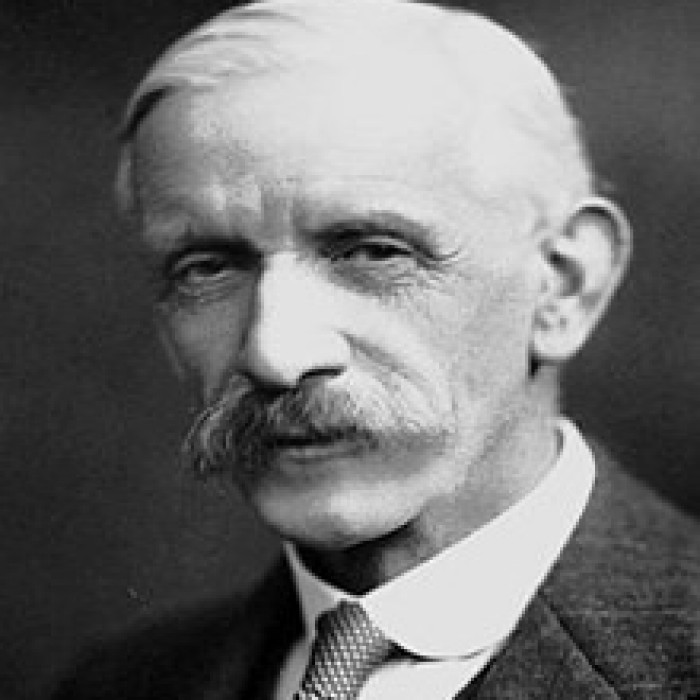
Sir Frederick Gowland Hopkins (20 June 1861 – 16 May 1947) was an English biochemist.
He was awarded the Nobel Prize in Physiology or Medicine in 1929, with Christiaan Eijkman, for the discovery of vitamins.
He also discovered the amino acid tryptophan, in 1901. He was President of the Royal Society from 1930 to 1935.
Hopkins was born in Eastbourne, Sussex, and educated at the City of London School completing his further study with the University of London External Programme and the medical school at Guy's Hospital which is now part of King's College London School of Medicine.
He then taught physiology and toxicology at Guy's Hospital from 1894 to 1898.
In 1898 he married Jessie Anne Stephens (1861–1937); they had two daughters, one of whom, Jacquetta Hawkes, was married to J.B. Priestley, the author.
Also in 1898, while attending a meeting of the Physiological Society, he was invited by Sir Michael Foster to join the Physiological Laboratory in Cambridge to investigate the chemical aspects of physiology.
He earned a doctorate in physiology (D.Sc) from the University of London in July 1902, and at the same time was given a readership in biochemistry at Trinity College.
In 1910 he became a Fellow of Trinity College, and an Honorary Fellow of Emmanuel College.
In 1914 he was elected to the Chair of Biochemistry at Cambridge University, thus becoming the first Professor in that discipline at Cambridge.
Hopkins had for a long time studied how cells obtain energy via a complex metabolic process of oxidation and reduction reactions.
His study in 1907 with Sir Walter Morley Fletcher of the connection between lactic acid and muscle contraction was one of the central achievements of his work on the biochemistry of the cell.
In 1912 Hopkins published the work for which he is best known, demonstrating in a series of animal feeding experiments that diets consisting of pure proteins, carbohydrates, fats, minerals, and water fail to support animal growth.
During World War I, Hopkins continued his work on the nutritional value of vitamins.
Hopkins is credited with the discovery and characterisation in 1921 of glutathione extracted from various animal tissues.
At the time he proposed that the compound was a dipeptide of glutamic acid and cysteine.
During his life, in addition to the Nobel Prize, Hopkins was awarded the Royal Medal of the Royal Society in 1918 and the Copley Medal of the Royal Society in 1926.
He died on 16 May 1947 in Cambridge and is buried at the Parish of the Ascension Burial Ground in Cambridge, with wife Lady Jessie Ann Hopkins.
His knighthood by King George V in 1925; and the award in 1935 of the Order of Merit, Great Britain's most exclusive civilian honour.
From 1930 -1935 he served as president of the Royal Society and in 1933 served as President of the British Association for the Advancement of Science.
Other significant honours were his election in 1905 to fellowship in the Royal Society, Great Britain's most prestigious scientific organization.
Source: Link

1564 - 1616

1803 – 1882

1854 – 1900

1942 – 2016

1928 – 2014

1835 – 1910

1869 – 1948

1884 – 1962
1898 – 1963

1929 – 1993

1879 – 1955

1809 – 1865

1807 – 1870

1800 – 1859

1795 – 1821

1755 – 1793

1984 -

1989 – 2011

1943 – 2001

1815 – 1902

1929 – 1994

1767 – 1848
